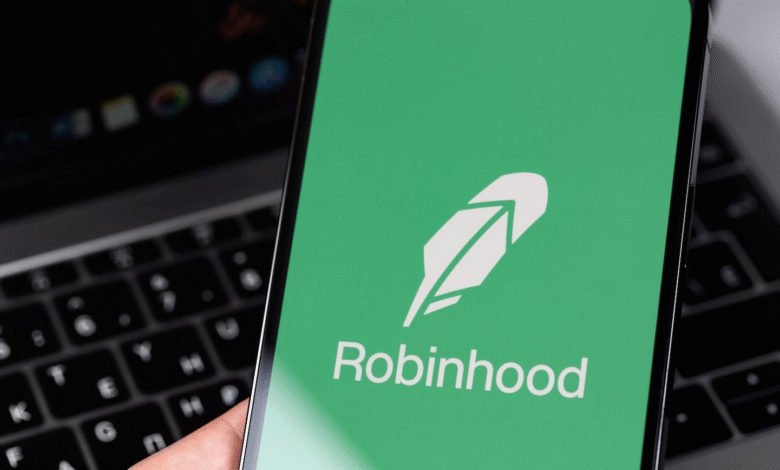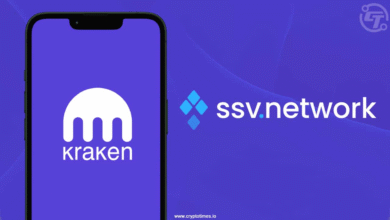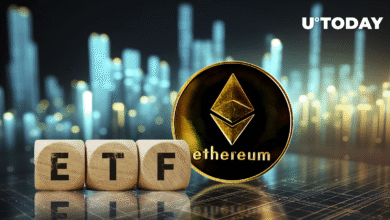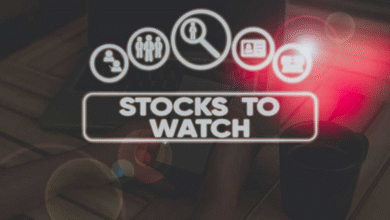Robinhood Stock Tokens Under EU Scrutiny After OpenAI Warning

Robinhood Stock Tokens are making waves in the financial landscape, particularly in Europe, where regulatory scrutiny is intensifying. Launched recently, these innovative tokens enable users to invest in stocks through a blockchain-based framework, promising an exciting new way to participate in the market. However, a warning from OpenAI has raised questions about the legitimacy of these tokenized equities, stirring concern among potential investors. The Bank of Lithuania, serving as Robinhood’s primary regulator in the EU, is currently seeking clarifications on the implications of these investments, especially in light of OpenAI’s distancing itself from the tokens. As the world of blockchain investments evolves, the intersection of technology and finance is becoming increasingly complex, and Robinhood’s initiative could reshape how investors engage with private equity.
Robinhood’s alternative investment method, known as ownership tokens or stock tokens, presents a modern approach to trading equities in the financial markets. These tokenized assets have gained traction in Europe, leading to regulatory evaluations by the Bank of Lithuania. Amid concerns highlighted by OpenAI, which clarified that it has no affiliation with Robinhood’s tokens, investors are urged to proceed with caution. The regulatory landscape is shifting as authorities examine how these blockchain-driven financial products affect consumer rights and investment transparency. This emerging trend is paving the way for a new era of secure and innovative financial solutions, but the focus remains on ensuring investor protection and compliance.
Understanding Robinhood Stock Tokens and Their Implications
Robinhood Stock Tokens represent a novel approach to investing, allowing users to acquire fractional shares of major companies through blockchain technology. However, recent scrutiny from regulatory bodies highlights a growing need for clarity in this emerging market. As Robinhood attempts to broaden its offerings, understanding the implications of these tokens for both investors and the wider financial landscape becomes paramount.
These blockchain-based tokens aim to democratize access to investment opportunities, especially for retail investors. However, following OpenAI’s warning regarding their equity status, questions arise about the true nature of these tokenized equities. Investors should be aware that while these tokens allow engagement with the stock market, they do not equate to traditional stock ownership and may come with inherent risks.
Frequently Asked Questions
What are Robinhood Stock Tokens and how do they work?
Robinhood Stock Tokens are a new way for users to invest in shares using blockchain-based tokens. These tokens represent tokenized equities of companies like OpenAI and SpaceX, allowing for fractional ownership and access to private markets.
Are Robinhood Stock Tokens regulated by the Bank of Lithuania?
Yes, Robinhood Stock Tokens are under the regulation of the Bank of Lithuania, which is the primary regulator for Robinhood in the European Union. The bank is currently seeking clarifications regarding the legality and compliance of these tokenized equities.
What did OpenAI say about Robinhood Stock Tokens?
OpenAI issued a cautionary statement saying that the Robinhood Stock Tokens, referred to as ‘OpenAI tokens’, do not represent actual OpenAI equity. They emphasized that there was no partnership with Robinhood and warned users to approach these tokens with caution.
Can I invest in OpenAI stock through Robinhood Stock Tokens?
While you can invest in Robinhood Stock Tokens that are linked to OpenAI, it is important to note that these do not represent direct equity in OpenAI. OpenAI has clarified that any equity transfer requires their approval, which has not been granted in this case.
What are the risks associated with investing in Robinhood Stock Tokens?
Investing in Robinhood Stock Tokens carries risks similar to other forms of blockchain investments. The absence of direct equity involvement, potential regulatory scrutiny from the Bank of Lithuania, and OpenAI’s warning against the tokens highlight the importance of due diligence and caution for investors.
How do blockchain investments differ from traditional stock investments?
Blockchain investments, like Robinhood Stock Tokens, allow for fractional ownership of tokenized equities, which can offer greater access and liquidity than traditional stock investments. However, they also come with unique risks and regulatory considerations that can differ significantly from conventional shares.
What should I consider before investing in Robinhood Stock Tokens?
Before investing in Robinhood Stock Tokens, consider the regulatory status given by the Bank of Lithuania, the nature of tokenized equities, the lack of direct ownership in companies like OpenAI and SpaceX, and the caution expressed by OpenAI regarding these tokens. Make sure to conduct thorough research and understand the potential risks involved.
How has the Bank of Lithuania responded to Robinhood’s new stock token offering?
The Bank of Lithuania has reached out to Robinhood for clarifications about the structure of its stock tokens after concerns were raised by OpenAI. They are evaluating the compliance and legality of these tokenized equities before making any determinations.
| Key Point | Details |
|---|---|
| Regulatory Scrutiny | The Bank of Lithuania is reviewing Robinhood’s stock tokens for compliance. |
| OpenAI’s Warning | OpenAI clarified that its tokens are not equivalent to actual equity. |
| Product Structure | Robinhood’s tokens allow blockchain-based investment in private companies. |
| Regulatory Communications | The Bank is awaiting more details from Robinhood on the token structure. |
| Potential Compliance Issues | Further assessment will determine the legality and consumer protection standards. |
Summary
Robinhood Stock Tokens are currently under scrutiny by the Bank of Lithuania, the primary regulator in the EU, following warnings from OpenAI regarding the nature of these tokens. As Robinhood seeks to provide retail investors with the ability to invest in private market shares through blockchain tokens, the need for clear, accurate communication has been emphasized by the regulators. This ensures that all stakeholders fully understand the implications and risks associated with such financial products.




